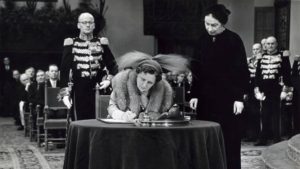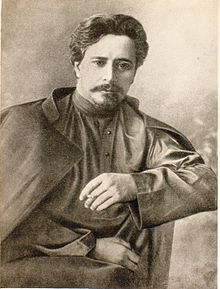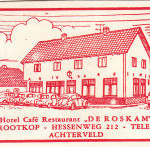Leonid Andreyev ~ The Seven Who Were Hanged
Foreword by Herman Bernstein
Leonid Andreyev, who was born in Oryol, in 1871, is the most popular, and next to Tolstoy, the most gifted writer in Russia to-day. Andreyev has written many important stories and dramas, the best known among which are “Red Laughter,” “Life of Man,” “To the Stars,” “The Life of Vasily Fiveisky,” “Eliazar,” “Black Masks,” and “The Story of the Seven Who Were Hanged.”
In “Red Laughter” he depicted the horrors of war as few men had ever before done it. He dipped his pen into the blood of Russia and wrote the tragedy of the Manchurian war.
In his “Life of Man” Andreyev produced a great, imaginative “morality” play which has been ranked by European critics with some of the greatest dramatic masterpieces.
The story of “The Seven Who Were Hanged” is thus far his most important achievement. The keen psychological insight and the masterly simplicity with which Andreyev has penetrated and depicted each of the tragedies of the seven who were hanged place him in the same class as an artist with Russia’s greatest masters of fiction, Dostoyevsky, Turgenev and Tolstoy.
I consider myself fortunate to be able to present to the English-reading public this remarkable work, which has already produced a profound impression in Europe and which, I believe, is destined for a long time to come to play an important part in opening the eyes of the world to the horrors perpetrated in Russia and to the violence and iniquity of the destruction of human life, whatever the error or the crime.
Introduction by Leonid Andreyev
I am very glad that “The Story of the Seven Who Were Hanged” will be read in English. The misfortune of us all is that we know so little, even nothing, about one another—neither about the soul, nor the life, the sufferings, the habits, the inclinations, the aspirations of one another. Literature, which I have the honor to serve, is dear to me just because the noblest task it sets before itself is that of wiping out boundaries and distances.
As in a hard shell, every human being is enclosed in a cover of body, dress, and life. Who is man? We may only conjecture. What constitutes his joy or his sorrow? We may guess only by his acts, which are oft-times enigmatic; by his laughter and by his tears, which are often entirely incomprehensible to us. And if we, Russians, who live so closely together in constant misery, understand one another so poorly that we mercilessly put to death those who should be pitied or even rewarded, and reward those who should be punished by contempt and anger—how much more difficult is it for you Americans, to understand distant Russia? But then, it is just as difficult for us Russians to understand distant America, of which we dream in our youth and over which we ponder so deeply in our years of maturity.
The Jewish massacres and famine; a Parliament and executions; pillage and the greatest heroism; “The Black Hundred,” and Leo Tolstoy—what a mixture of figures and conceptions, what a fruitful source for all kinds of misunderstandings! The truth of life stands aghast in silence, and its brazen falsehood is loudly shouting, uttering pressing, painful questions: “With whom shall I sympathize? Whom shall I trust? Whom shall I love?”
In the story of “The Seven Who Were Hanged” I attempted to give a sincere and unprejudiced answer to some of these questions.
That I have treated ruling and slaughtering Russia with restraint and mildness may best be gathered from the fact that the Russian censor has permitted my book to circulate. This is sufficient evidence when we recall how many books, brochures and newspapers have found eternal rest in the peaceful shade of the police stations, where they have risen to the patient sky in the smoke and flame of bonfires. Read more
65 jaar Statuut
 Het Statuut voor het Koninkrijk der Nederlanden is jarig. Vandaag viert zij haar 65ste verjaardag. Net als bij de mensen krijgt zij haar AOW wat later dan gedacht toen ze geboren werd. Vanaf 15 april 2021 wordt die uitkering pas op haar rekening bijgeschreven. Maar het is de vraag of zij vanaf die datum op haar lauweren kan gaan rusten.
Het Statuut voor het Koninkrijk der Nederlanden is jarig. Vandaag viert zij haar 65ste verjaardag. Net als bij de mensen krijgt zij haar AOW wat later dan gedacht toen ze geboren werd. Vanaf 15 april 2021 wordt die uitkering pas op haar rekening bijgeschreven. Maar het is de vraag of zij vanaf die datum op haar lauweren kan gaan rusten.
Koningin Juliana ondertekende de overeenkomst tussen de landen die samen het Koninkrijk vormden in 1954. Het Koninkrijk omvatte in dat jaar Suriname, de Nederlandse Antillen en het Europese Nederland. Ook Nederlands-Nieuw Guinea hoorde in dat jaar nog tot het Koninkrijk. Het gebied kreeg een grote mate van autonomie, maar het Statuut gold niet voor haar. In 1962 droeg Nederland dit overzeese gebied over aan Indonesië
Het Statuut legde vast dat de bewoners van de genoemde landen de Nederlandse nationaliteit hadden en één staatshoofd, het huis van Oranje, boven zich accepteerden. Verder werd afgesproken dat de landen een gemeenschappelijk buitenlands beleid zouden voeren, een gezamenlijke defensie zou zorgen voor rust aan de grenzen. Daarnaast was verdere samenwerking mogelijk indien wenselijk. Het stond de landen vrij om interne aangelegenheden op eigen manier aan te pakken.
Het uitgangspunt van het Statuut was en is de gelijkwaardigheid tussen de landen. Een nobel streven.
In 1975 vond het kabinet Den Uyl dat het tijd werd om de koloniale erfenis overboord te zetten. Suriname werd onafhankelijk en de Nederlandse Antillen en Nederland bleven over als twee afzonderlijke landen binnen het Koninkrijk.
In 1985 vond Aruba het tijd om op eigen benen te staan. Het eiland kreeg een status aparte. Waardoor het Koninkrijk weer uit drie landen bestond.
In de loop van de jaren werd het Statuut zo nu en dan aangepast, uiteindelijk resulterend in ingrijpende staatkundige hervormingen. Referenda zorgden ervoor dat uiteindelijk op 10.10.10 Aruba, Curaçao en Sint Maarten de status van zelfstandig land binnen het Koninkrijk kregen en dat Bonaire, St.Eustatius en Saba zich ‘bijzondere gemeentes’ van Europees Nederland mogen noemen.
Op het verjaardagspartijtje vandaag zullen ongetwijfeld feestelijke woorden worden gesproken. Maar ook zullen er kritische noten worden gekraakt. Want het is niet alleen maar feest in het Koninkrijk.
Den Haag kijkt hoofdschuddend naar de eilanden. Daar heeft de Hofstad wel redenen voor. Want dat het nu alleen maar goed gaat, is lastig te bewijzen. De kleuter van het stel, Saba, staat het stevigst op haar beentjes. De overige vijf zitten wat beteuterd in de klas.
De drie zelfstandige landen, Aruba, Curaçao en Sint Maarten, kampen met grote financiële zorgen. Ondermeer als gevolg van corruptie, wanbeleid en incompetentie.
Een deel van bewoners van Bonaire en St. Eustatius is ernstig teleurgesteld na de keuze in 10.10.10 om onderdeel van het moederland te blijven. Zij leven nog steeds in bittere armoede. Hier kan Den Haag niet alleen maar met de beschuldigende vinger naar de lokale politici wijzen. Ook zij is verantwoordelijk voor de gang van zaken.
De verlenging van het werkzame leven door het opschuiven van de pensioengerechtigde leeftijd leverde her en der veel geklaag op.
Het Statuut kan zich opmaken voor nog langer doorwerken. Het zal niet haalbaar zijn om op 15 april 2021 een afscheidsborrel te organiseren.
Daarvoor zijn de verhoudingen binnen het Koninkrijk te complex.
Mei
 ‘Heeft u wat geld voor me?’
‘Heeft u wat geld voor me?’
Ze staat bij de ingang van de supermarkt.
Ze is een jaar of zeventien, achttien.
Ze is goed gekleed en ziet er verzorgd uit.
Ik geef haar de paar euro die ik in mijn zak heb.
‘Dank je wel’, zegt ze.
Als ik vijf minuten later naar buiten loop, stel ik toch de vraag.
‘Waarom sta jij hier?’
‘Ik heb schulden gemaakt’, zegt ze, ‘niet erg veel, hoor.’
Ze haalt haar schouders op.
‘Ik ben stom geweest.’
Ze glimlacht.
‘In mei ben ik al klaar met afbetalen.’
‘Dat is toch nog een half jaar’, zeg ik, rekenwonder.
‘Ja, maar ik mocht gelukkig mijn kamer houden. Die kan ik net betalen.’
Ze haalt haar schouders weer op.
‘En ik heb mijn telefoon nog. Alleen blijft er niks over voor boodschappen.’
Op weg naar huis struikel ik bijna over mijn goedertierenheid. Maar als ik thuis ben, zijn alle mogelijke hulpacties weer tot rust gekomen, zet ik de computer aan, tik dit stukje en buig me over de redactie van een stuk over circulaire economie.



